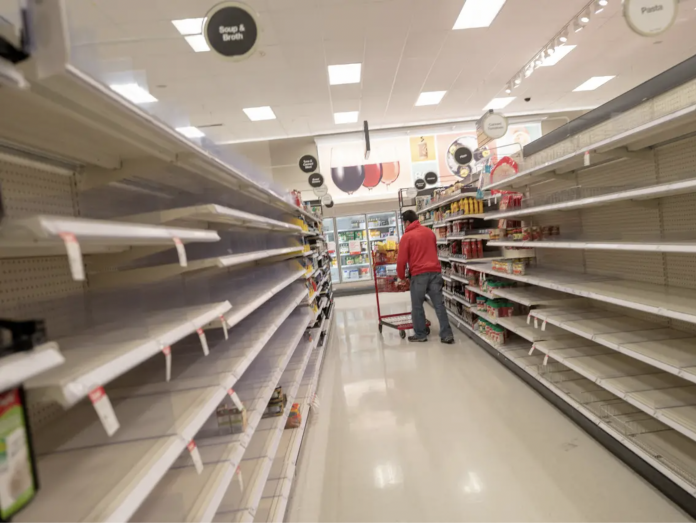What is it about toilet paper? It seems that whenever a crisis looms, people flock to fill supermarket trolleys and sweep the shelves bare. This isn’t a new phenonomenon. I was surprised recently when a long-time friend dug out a letter I wrote to her while I was living in England in January 1974.
“I expect England has been hitting the news over there with all our strikes, power shortages etc. It’s really pretty grim and many people have told us that conditions are worse than during the war. Many food items are in short supply and shops have to ration toilet paper of all things!”
The Covid-19 pandemic has taught us that our supply chains are vulnerable to disruption. Floods in eastern Australia destroying transport routes have underlined this fragility. When products threaten to be in short supply, panic-buying and hoarding can exacerbate – or even cause – the problem. As I write this, my local supermarket is rationing products including long-life milk, bread flour, rice, tinned vegetables and, of course you-know-what, to one item per customer. It’s not just food supply chains that are in crisis. Our new home build has been held up for months by shortages in building supplies. Supply chains are as strong as their weakest links. Even if one small component cannot be accessed due to disruptions, a whole process can come to a halt.
How do we navigate shortages of groceries and essential items and tread a sensible line between hoarding and ensuring that we have sufficient supplies during these uncertain times?
The first answer is grow your own and buy local. This makes sense on all levels because you will be supporting our own growers, producers and manufacturers. Making connections between farmers and consumers, food markets and food hubs can be part of the recipe for food security.
A significant opportunity exists to support the re-localisation of food production, processing and consumption. Hopefully the current multi-faceted predicaments posed by the pandemic, more severe weather events, floods, bushfires and habitat loss will be a catalyst for a greater focus on food sovereignty.
Food sovereignty goes a step further to include justice, healthy food for all, and putting providers and consumers at the center of decision-making on food issues. It rejects methods that harm beneficial ecosystem functions, that depend on energy-intensive monocultures and livestock factories, destructive fishing practices and other industrialised production methods which damage the environment and contribute to climate change. Bring it on!
Most of our fresh food and vegetables are grown in WA but sourcing all our needs locally is not simple, as a friend who tried to be a ‘locavore’ for a month discovered. Many local manufacturers depend on imported ingredients and materials, and some things we view as necessities, like coffee beans, are imported. So as well as buying food that is locally-grown or raised, fresh and in season, we need to decide what products to stock up on.
A psychologist has suggested that “you should start by taking stock of the items you already have at home, and how long they will last. When stocking up, it’s important to limit waste and be considerate. It’s not helpful to buy food that spoils, or buy so many products that others, including the elderly, experience hardship.”
It’s useful to decide how long you think you might need to be self-sufficient. It may be long enough to manage through a lockdown, recover from an infection or look after yourself during an emergency or supermarket supply crisis. The standard advice seems to be two weeks.
Flavio Macau of Edith Cowan University says three weeks: “open your freezer, go to your pantry. Do you have three weeks’ worth of essential items? Mince, pasta, rice, flour, beans, toilet paper? If you don’t have three weeks’ supply, and have both the space and money to stock, go for it. If not now, because there is a shortage, then in the next opportunity. This is not about panic-buying or hoarding. I’m not suggesting you buy a year’s worth of toilet paper or tinned food. Just always have enough so you can have peace of mind next time.”
































